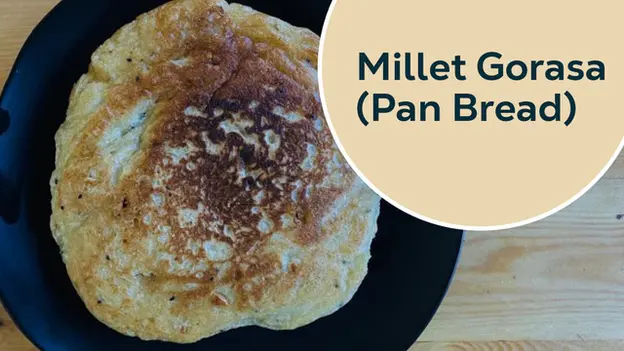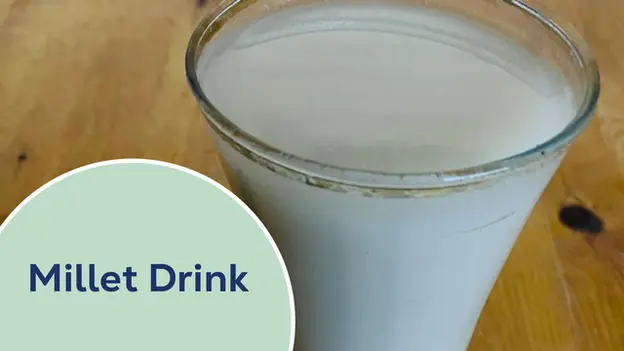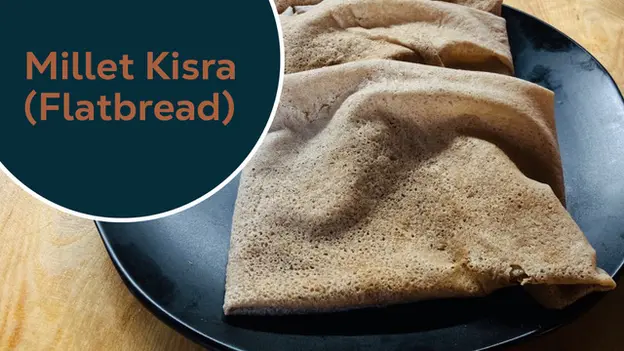Tandem Project
Reviving Sudan’s Grains: Nourishing Future Generations
In Sudan, malnutrition among infants and young children is a pressing concern, especially in rural areas. In Sudan, many families depend primarily on staple cereals such as sorghum and millet to nourish their young children; however, these cereals are often deficient in essential nutrients. Although industrially produced baby foods could offer improved nutritional value, their high cost makes them inaccessible to the majority of families.
We bring indigenous food knowledge and modern nutritional science together to challenge malnutrition. By enhancing traditional recipes with biofortified grains, we create sustainable and culturally relevant solutions for child nutrition.
Tilal Sayed Abdelhalim
This project aims to tackle this challenge by improving the nutrition value of traditional cereal-based foods –that are familiar to Sudanese families. To achieve this goal, AGYA member Prof. Dr. Tilal Sayed Abdelhalim his team are collaborating with local communities in rural Sudan to document and improve traditional food preparation methods.
Enriching local dishes with nutrients – A community centred approach
Centuries-old food traditions are being preserved through the systematic documentation of ingredients, preparation techniques, and their cultural significance. This effort also encompasses the recording of traditional medicinal uses of foods and the oral storytelling practices associated with them, which have been passed down through generations.
Field surveys conducted across six villages in Al-Qadarif documented 47 traditional dishes, including 21 cereal-based recipes forming the foundation of infant and young child nutrition. These recipes reflect the diverse culinary traditions of Sudanese communities and their deep cultural significance.
An exciting part of our project involves creating a recipe book that combines traditional knowledge with modern nutritional science.
Claudia Böhme
By incorporating newly developed, nutrient-rich varieties of sorghum and millet into these recipes, the project partners can significantly improve their nutritional content. These special varieties are higher in iron and zinc, two crucial minerals for child development.
These are the foods our grandmothers made for us, and now we see them being improved to nourish our children in a new way.
Layla Madani, Participant, Wad Dayyef Village
The team in Sudan is collaborating with local women, especially those with extensive cooking experience, to learn about traditional food processing techniques. The project partners are working to refine these methods to enhance nutrient availability and reduce anti-nutrients that can interfere with mineral absorption.
Development of a recipe book for indigenous Sudanese cereal-based foods
Each recipe meets international dietary guidelines for children while remaining true to Sudanese culinary traditions. To make sure that the improved recipes are practical and appealing, the research team conducts taste tests and sensory evaluation with local families. This resource is intended for families, health workers, and policymakers seeking to improve infant nutrition using locally available ingredients.
The evaluation of the recipes is crucial – after all, even the most nutritious food won't help if children won't eat it!
Manhal Gobara, Research Team, Sudan
By the end of this project, the project partners aim to provide Sudanese families with the knowledge and tools, to prepare more nutritious foods at home. This approach offers an affordable and accessible way to improve child nutrition across the country.
- Corporations Partners
- Agricultural Research Corporation (ARC), Al Qadarif Research Station, Sudan
- Disciplines Involved
- Agricultural Science, Anthropology
- Previous Projects
- Biofortification of Sorghum´s Wild Relatives – Fighting Malnutrition in Sudan
- Unlocking the Repository of Genetic Diversity of Sudanese Sorghum´s Wild Relatives and Their Efficient Utilization in Climate-resilient Sorghum Pre-breeding
- Project Title
- Unlocking the benefits of indigenous Sudanese cereal-based foods to combat infants and children
- Year
- 2024
- Funding Scheme
- Tandem Project
- Countries Involved
- Sudan, Germany
- AGYA Publication
- Sensory profiling of traditional Sorghum porridge (Aceda): advancing nutritious and culturally accepted biofortified products
- Sensory evaluation and consumer acceptance of Kisra, a sudanese fermented flatbread made with biofortified sorghum: Insights from check-all-that-apply (CATA) method
- Nasha: A culturally embedded sorghum-based weaning food for infants in humanitarian settings
- Deciphering consumer perceptions of Kisra prepared from biofortified and non-biofortified sorghum cultivars using the rate-all-that-apply (RATA) method




